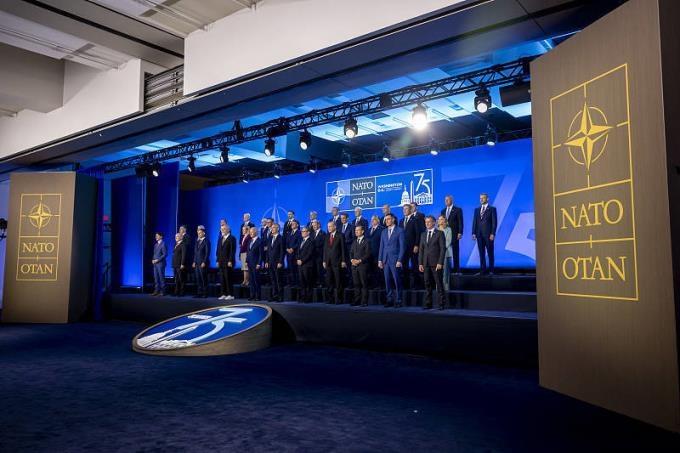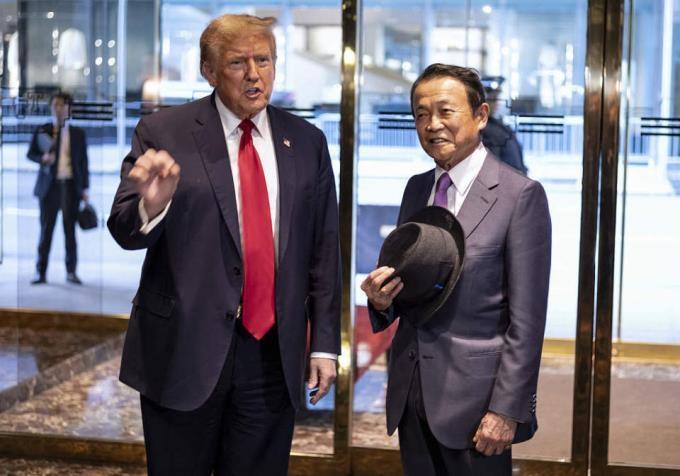"With the increase in Trump's chances of election, the European Asian allies in the United States re -evaluated the strategy of China." The Hong Kong English Media South China Morning Post quoted analysts on July 15th, saying that European, Japan and South Korea and other Asian countries were worried aboutTrump's victory may put new pressure on them in the field of defense costs and trade.
For Europe, once Trump put forward an unacceptable request for China, they will have a choice to fight back; in Asia, Japan will adjust its policy based on Trump's position in China.It is believed that Biden is too tough to China, and Japan will ease relations with China; some people in South Korea may also ask the government to re -adjust the position of the government with the damage to South Korea's interests of Trump.
The article said that Trump's earlier attempted assassination brought new impetus to his re -election campaign and increased his chances of winning, but American allies began to be nervous.Observed people in the field of diplomatic said that the possibility of winning in the November election increased, which may promote the potential impact of European and Asian allies in the United States and re -adjust their own impacts in some cases.manner.

In Europe, officials have been preparing for the possibility of Trump's return, and they have long believed that this is the worst situation.They predict that the close relationship between the European countries and the Biden government will not continue to the "Trump 2.0" era.During Trump's first term, a trade war broke out with Europe.Trump threatened that if European member states do not increase national defense budget, the United States will withdraw from NATO.With the continuation of Russia and Ukraine's current conflict, Trump's vice -elected deputy and Republican vice presidential candidate Wan Sis has repeatedly called on ending assistance to Ukraine. A tense panic sentiment spread in the European Union and other European countries.
The article believes that although Feng Delin has successfully re -elected as the Chairman of the European Commission, the results of the US election may not change her to continue to implement a strong stance on China, how much the EU can support Trump still has questions.
Under the leadership of Biden, the United States relies on the European Union to adopt a tougher attitude towards China.EU sources said that under the pressure of the White House, the European Union -the United States Cross -Atlantic Trade and Technology Council (TTC) proposed the key points of investment in China and get rid of China, but this was not obtained among the 27 member states of the European Union.Great attraction.If Trump is elected again, EU countries are worried that the pressure from the United States will be stronger and purely trading.In terms of steel and aluminum tariffs, neither the EU and "friendly" Bayeng government could not permanently solve the problem by negotiating, let alone the Trump administration.
"If Trump returns, there will be a lot of noise in the beginning, which will be a challenging period." Consulting company Rhodium Group Chinese business senior adviser Noah Barkin said, "Although Trump passed the signal of separate action, the reality is that the United States needs Europe. When the United States tries to make China refuse, it needs Europe more. That is to say, Europe is not without leverage.Trump Trump.
Pakin believes that the big compromise of the United States and Europe may involve foreign policy: the United States continues to support Ukraine in exchange for Europe to support Washington more strongly on China.He said: "Trump will put forward certain requirements in terms of China, some of which are difficult to accept. Europe will have a choice counterattack."
As a long -term allies in Asia, Japan is also preparing for Trump to win.
Cheung Mong, associate professor of Waseda University, Tokyo, Japan, pointed out that the Liberal Democratic Party began to contact the Trump team as early as January this year, but Japan is still evaluating the official position that Trump may win because Japan in September this yearThe Prime Minister will be replaced. At that time, the new leader may have a new view of this,

On April 23, local time, Trump met with Aooson Taro Visual China in the Trump Building in Manhattan, New York.
Nevertheless, Japan is still difficult to get rid of concerns about Trump's re -election.Zhang Wang said that the Bayeng government pursues the strategy of "collaboration with Eurasian allies", but Trump will pursue the "US priority" policy, which means that the United States tends to pressure Japan to force them to make concessions.He said: "Japan's concerns about the United States mainly include two points: first, Japan is required to pay more money to share the cost of the US military in Japan; second, it is required to reduce the US trade deficit with Japan."
Zhang Wang also believes that the impact of Trump's re -election on the relationship between allies and China depends on how Trump thinks of Biden's policy on China.If Trump believes that Biden is too tough for China and choose to adopt a slightly mild policy for China, Japan will implement a "tactical hedging strategy and adopt a gentle strategy for China."However, if Trump believes that Biden's policy for China is too weak and needs to be adjusted, Japan will be happy to continue to maintain its current strategic balance policy for China and "curb the Chinese army into the Western Pacific."
South Korea has similar concerns to Japan.Liu Yongyu (YongWook Ryu) at the International Relations Assistant Professor of Li Guangyao School of Public Policy at the National University of Singapore analyzes that if Trump is elected again, it may eventually "put a lot of pressure" in Seoul.He said that during the term of President Trump, the United States and South Korea had a diplomatic goal of contacting North Korea, but the South Korean government was facing the "huge pressure" applied by the US military costs in South Korea. In the end, South Korea was forced to increase 13%Cost expenses.
Liu Yongyu is worried that if the Trump administration who has come back to the soil will continue to ask South Korea to increase spending, then this may once again become "a difficult issue that affects alliance relations and unity."
"The South Korean government is preparing for this possibility, carefully weighing what to make concessions and what rewards are required." He said that a possible way is that South Korea rushed to Trump before he might re -control power with Bayen Biden.Government negotiations and reached a national defense budget agreement "to fight for time to determine the policy direction and preferences of the Trump's new government."
"If the Trump's new government acts in a way of favorableism and tries to maximize its own interests at the cost of harming the interests of South Korea, then (South Korea) may have questioned the close security cooperation between South Korea and the United States, so as to require(Government) Re -adjusted his position to China. "Liu Yongyu said.
The Philippines in Southeast Asian countries is also considering the impact of Trump's victory.
马尼拉德拉萨大学讲师、国防分析师唐·麦克莱恩·吉尔(Don McLain Gill)称,特朗普可能会推行一项新的印太战略,优先考虑美国的主导地位而非“盟友和Partnership network.For example, on the South China Sea issue, even if Trump takes a tough position like Biden, it is "the desire to re -position the United States", not to form an alliance with the Philippines.
Gil calls Trump a "trading leader". The Philippines worry that the United States will abandon the key areas that have promised under his leadership and push more responsibilities to the Western Pacific allies.
[Text/Observer Network Liu Chenghui]



